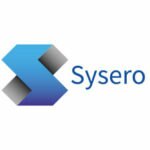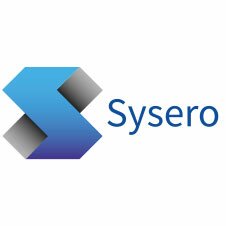Five transformative use cases for workflow automation in law firms with Sysero
Amongst the cost of living crisis and rising inflation, today’s law firms face mounting cost pressures. In this turbulent economy, firms must seek out new ways to enhance efficiency and reduce costs, while still delivering exceptional service to clients.
One powerful solution that has gained significant traction is workflow automation. It’s no surprise why, as recent researchshows that 44% of legal work could be automated. By leveraging technology to automate repetitive tasks and streamline processes, law firms can optimise their operations and focus more on delivering strategic legal services.
While many firms have already adopted workflow automation to generate legal documents, there are plenty of other ways that firms can leverage the power of workflow automation to transform the way lawyers work.
Let’s explore five transformative use cases for workflow automation in law firms:
Case Intake & Management
Managing client information and case details is a fundamental aspect of legal practice. Workflow automation can revolutionise this process by automating the capture, organisation, and tracking of case data. From initial consultations to conflict checks and case assignment, workflow automation ensures that crucial information is efficiently managed and accessible to relevant team members.
Take for example, how Spoor & Fisher Jersey leveraged Sysero’s workflow automation technology to build its Trademark Enquiry Handling Workflow. The workflow enables members of the firm’s trademark formalities team to easily create a list of outstanding enquiries by selecting emails within Outlook and adding them to the workflow queue. Once users are ready to process the updates, they can access their queue via Outlook or the web interface and start the workflow.
Compliance Monitoring & Management
Staying compliant with ever-evolving regulations is a top priority for law firms. Workflow automation can play a pivotal role in compliance monitoring by setting up automated workflows to track regulatory changes, deadlines for filings, and compliance requirements. This ensures that legal teams are always informed and proactive in addressing compliance issues.
Workflow automation can also be used to develop robust record management systems to aid with compliance. Faced with the burden of compliance concerning client files, Wedlake Bell partnered with Sysero to create a custom-built records management system that helped the firm take control of historical physical and electronic records. By ensuring the effective management of client records – including easily retrieving client matter numbers from Worksite – Wedlake Bell can now easily monitor and enforce compliance on records, protecting its reputation and relationships.
Client Onboarding
The client onboarding process is often time-consuming and resource-intensive. Workflow automation simplifies this process by automating client intake forms, engagement letters, and initial data collection. By automating these tasks, law firms can onboard new clients more efficiently while maintaining accuracy and compliance with regulatory requirements.
Wikborg Rein automated its client onboarding process with a digital intake solution from Syserothat provides the firm’s users with an intuitive, adjusted web interface where they can register new clients and cases and see that the necessary information is collected and verified by client and data sources in accordance with current regulations. Additionally, the solution provides necessary approvals internally, and everything is documented automatically.
Client Communication
Effective communication is key to building strong client relationships. Workflow automation enables law firms to automate client communication workflows, including email notifications, reminders, and status updates. By automating these routine communications, law firms can ensure timely and personalised interactions with clients, enhancing overall satisfaction and trust.
Spoor & Fisher Jersey’s Trademark Enquiry Handling Workflow not only eased workload for its staff, but also revolutionised client service through the automation of status updates for its clients.
Client Collaboration
Collaboration between legal teams and clients is essential for successful outcomes. Workflow automation facilitates client collaboration by creating automated workflows for information gathering, as well as document sharing, review, and approval. With automated collaboration tools, law firms can streamline communication, track feedback, and ensure seamless collaboration throughout the legal process.
Plus, with Sysero’s Hybrid Cloud Workflows, firms can host workflow forms on the public cloud to make them easily available to clients, whilst storing the data they provide on the firms’ private cloud for maximum security.
In Conclusion
Workflow automation presents a myriad of opportunities for law firms to transform their operations and deliver exceptional value to clients. By embracing automation in areas such as case management, client communication, compliance monitoring, client onboarding, and client collaboration, law firms can unlock new levels of efficiency, productivity, and client satisfaction. As the legal industry continues to evolve, workflow automation will undoubtedly remain a driving force in shaping the future of legal practice.



